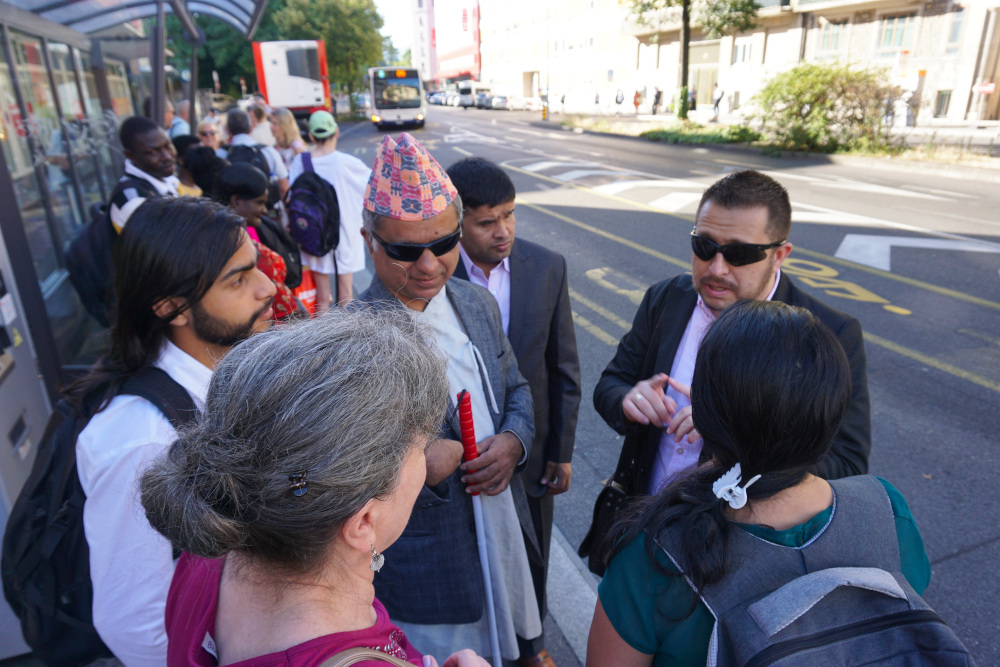Persons with deafblindness are often excluded from services, support, and social life due to their disability. Article 2 of the The Convention on the Rights of Persons with Disabilities (CRPD) defines discrimination on the basis of disability as “any distinction, exclusion or restriction on the basis of disability which has the purpose or effect of impairing or nullifying the recognition, enjoyment or exercise, on an equal basis with others, of all human rights and fundamental freedoms in the political, economic, social, cultural civil, or any other field”. Therefore, the exclusion of persons with deafblindness is largely due to discrimination and stigma perpetuated by the stereotypes, misperceptions, and assumptions about persons with disabilities which often derive from a lack of understanding. A common misperception is that persons with deafblindness cannot be helped, supported, or reached because they will not understand the situation or because there is a presumption of inability. These misperceptions only lead to further exclusion and marginalisation.
Despite legal frameworks like the CRPD, individuals with deafblindness encounter barriers in their daily lives. Recently, Zamir Dhale, WFDB Regional Representative for Asia, shared a distressing incident illustrating the discrimination faced by individuals with deafblindness, all around the world.
During a journey from Kudachi district in Karnataka to Pune (India), Zamir and his colleague experienced discrimination on public transportation.. Despite their attempts to communicate their needs, the bus conductor refused to allow Zamir to disembark at his intended stop, citing government regulations. This refusal, coupled with disrespectful behavior, left Zamir stranded and vulnerable on the roadside. Read Zamir’s original story here
Zamir’s experience serves as a clear reminder of the challenges faced by individuals with deafblindness in navigating public spaces and accessing essential services. His story highlights the realities and discrimination faced by persons with deafblindness. His story underscores the urgent need to raise awareness and advocate for equal rights and respect for persons with disabilities.
Highlighting the urgent need for improved awareness and sensitivity among transportation providers, as well as the general public, Zamir’s ordeal on public transportation exposes the pressing need for proactive measures to address discriminatory practices. To address such injustices, it is imperative to advocate for the rights of individuals with deafblindness and promote awareness among the general public and service providers alike. Initiatives aimed at sensitizing transportation personnel and implementing inclusive policies can significantly improve the experiences of persons with deafblindness in public spaces.
In conclusion, as advocates for inclusivity and equality, we must stand in solidarity with individuals like Zamir and take proactive measures to challenge discriminatory attitudes and practices. By fostering a culture of understanding and empathy, we can create a society where every individual, regardless of their abilities, is treated with dignity and respect, aligning with human rights frameworks.

